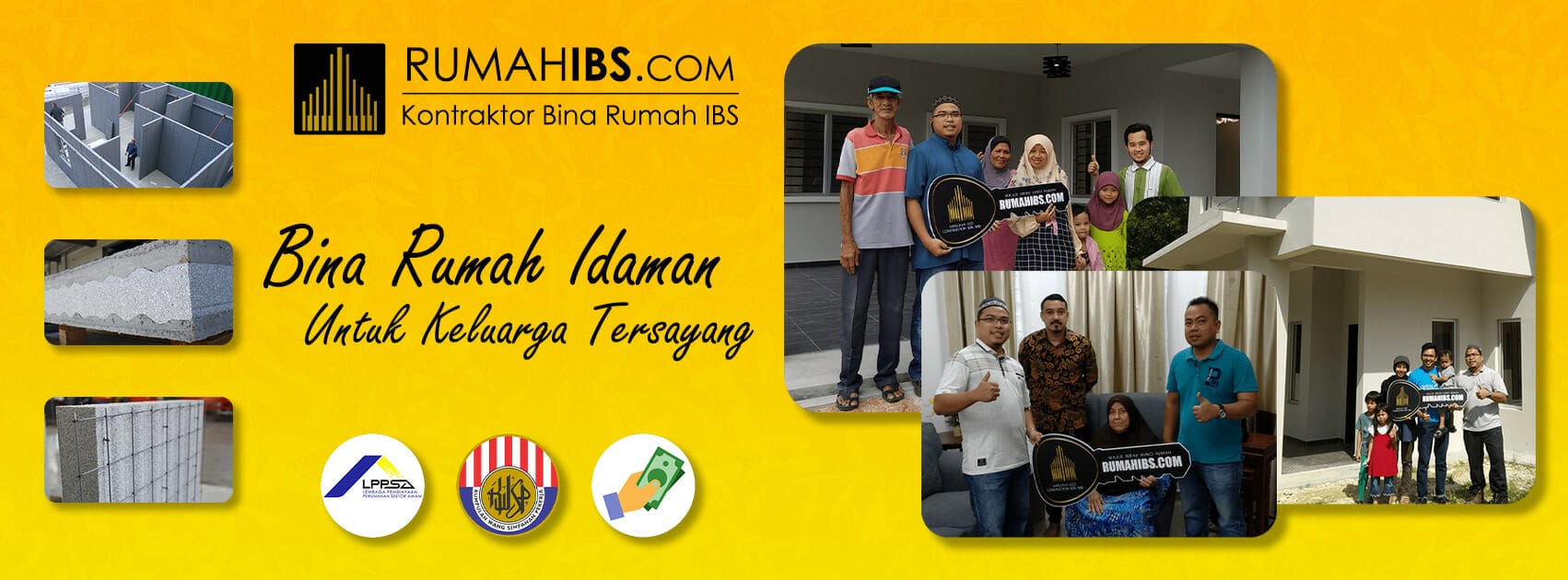Home Financing in Malaysia: A Comprehensive Guide
- What are the different types of home loans available in Malaysia?
- What is the process for getting a home loan in Malaysia?
- What documents do I need to apply for a home loan in Malaysia?
- What are the eligibility criteria for home loans in Malaysia?
- How do I calculate my loan eligibility and repayment amount?
- What is the difference between a fixed rate and floating rate home loan?
- What fees and charges are involved in taking a home loan in Malaysia?
- How can I get the best home loan interest rates in Malaysia?
- What are the tax benefits I can avail on a home loan in Malaysia?
- What precautions should I take before applying for a home loan in Malaysia?
1. What are the different types of home loans available in Malaysia?
There are several types of home loans available from banks and financial institutions in Malaysia:
- Conventional Home Loan – The most common type of home loan. Interest rates are variable and linked to the Base Lending Rate (BLR).
- Fixed Rate Home Loan – Interest rate remains fixed for an agreed period, usually 2-5 years. Provides certainty against interest rate fluctuations.
- Islamic Home Financing – Uses Shariah concepts like Ijarah, Musharakah, Murabahah. No interest charged, but profit rates apply.
- Green Mortgage – Offers discounts on interest rates for purchasing green properties. Promotes energy efficiency.
- Rent-To-Own Scheme – Allows buyers to rent a property initially and purchase it gradually over time.
- Foreign Currency Loan – Loan amount and repayments are in foreign currencies like USD or SGD. Hedging against MYR fluctuations.
- Bridging Loan – Short-term financing to bridge the gap between purchasing a new home before selling an existing one.
- Refinancing Home Loan – Allows revising or changing terms of an existing home loan. Can help secure better rates.
2. What is the process for getting a home loan in Malaysia?
The step-by-step process for availing a home loan in Malaysia is:
- Determine loan eligibility based on income, expenses, credit score etc.
- Research interest rates and schemes from multiple banks. Compare offers.
- Select a property and obtain an Option to Purchase from developer.
- Submit loan application with all required documents to bank.
- Bank will evaluate application and perform credit checks.
- If approved, bank will issue a Letter of Offer detailing loan terms.
- Hire a lawyer to review documents and do due diligence on property.
- Sign loan agreement. Make downpayment via cheque or wire transfer.
- Upon receiving balance payment, developer will transfer property title.
- Servicing the monthly instalments until the loan is fully repaid.
3. What documents do I need to apply for a home loan in Malaysia?
Here are the key documents required when applying for a home loan in Malaysia:
- Completed home loan application form
- Identity documents – NRIC, passport, birth certificate
- Proof of income – salary slips, EPF statements, tax returns
- Bank statements for past 6 months
- Details of other loans and credit cards
- Documents of property/asset to be purchased
- Credit report from CCRIS
- Processing fee cheque as required by bank
- Documents of current residence – rental agreement or utility bills
- For self-employed – business registration docs, financial statements
- For expatriates – valid work permit, employment confirmation
Having these documents ready will help expedite the home loan approval process.
4. What are the eligibility criteria for home loans in Malaysia?
The key criteria banks use to determine home loan eligibility in Malaysia are:
- Age – Applicant’s minimum age is 21 years. Maximum age limit is 65 years at loan maturity.
- Income – Minimum monthly income of RM3,000 required. Total monthly instalments should not exceed 60% of income.
- Employment – Permanent employment with at least 1 year of service. Self-employed for 2 years.
- Credit Score – Minimum credit score of 650 required. No payment defaults or bankruptcy history.
- Downpayment – 10% to 20% of property value required as downpayment.
- Loan Tenure – Maximum 35 years for first home loan. Shorter for subsequent loans.
- Nationality – Malaysian citizens and permanent residents preferred. Expatriates require valid work permits.
- Debt Service Ratio – Total monthly debt obligations should not exceed 60% of gross monthly income.
Meeting the above criteria increases the chances of home loan approval.
5. How do I calculate my loan eligibility and repayment amount?
You can calculate your loan eligibility and potential monthly repayment using these steps:
- Determine your total monthly income from all sources.
- List all your current monthly expenses – rent, loans, credit cards etc.
- Deduct expenses from income to determine surplus monthly funds available.
- Multiply surplus amount by 60% to find your potential monthly instalment.
- Use a Home Loan Calculator to determine loan amount you can qualify for based on instalment.
- Input property price, interest rate, loan tenure to see loan details.
- The calculator shows loan amount, total interest outlay, monthly instalments.
- Review the repayment schedule to see if instalments are affordable for you.
- Apply for a slightly lower loan amount than the eligibility to remain comfortable.
6. What is the difference between a fixed rate and floating rate home loan?
The key differences between fixed and floating rate home loans are:
| Criteria | Fixed Rate Home Loan | Floating Rate Home Loan |
|---|---|---|
| Interest Rate | Remains fixed for the entire loan tenure | Changes according to market rates |
| Rate Fluctuation Risk | No risk as rate is fixed | Risk of increasing interest rate |
| Instalments | Same EMI for entire tenure | EMI changes when interest rate changes |
| Interest Rate Offered | Typically higher than floating | Lower than fixed rate loans |
| Fees | Higher processing and prepayment fees | Lower fees than fixed loans |
| Ideal For | Those who prefer predictability | Those who can accommodate rate changes |
A fixed rate loan provides stability against interest rate hikes, while a floating rate loan offers lower initial installments with the risk of volatility. Choose as per your risk appetite.
7. What fees and charges are involved in taking a home loan in Malaysia?
The common fees and charges involved with taking a home loan in Malaysia:
- Processing fee – One time fee charged by bank for processing the loan application. Typically 0.5% to 1% of loan amount.
- Legal fee – Paid to lawyer for preparing legal documents and conveyancing. Around 0.8% to 1.5% of loan amount.
- Stamp duty – Tax paid to government based on loan agreement. Between 0.5% to 3% of loan amount.
- Valuation fee – For bank’s assessment of property value. Ranges from RM300 to RM3000 depending on property price.
- Admin fee – Bank’s administrative charges for loan account opening. RM50 to RM500 one time fee.
- Early settlement fee – Levied if loan is redeemed before maturity period. Usually 1% to 3% of outstanding amount.
- Late payment charges – Typically 1% of outstanding instalment if payment delayed over due date.
- Cancellation fee – Imposed if loan is cancelled midway after acceptance. About 0.5% to 1% of loan amount.
- Restructuring fee – If loan tenure or amount is changed later. Between RM50 to RM500 per request.
Being aware of these charges will help estimate the overall costs involved in availing a home loan.
8. How can I get the best home loan interest rates in Malaysia?
Here are some tips to get the most competitive interest rates on your home loan in Malaysia:
- Maintain an excellent credit score above 750. This signals lower risk for banks.
- Compare rates across multiple banks. Leverage online portals for easy research.
- Opt for a longer tenure like 30-35 years. This lowers monthly instalments and interest cost.
- Make a sizable downpayment of 20% or more. This presents you as a serious buyer.
- Sign up for a salary crediting account with bank for 6 months before applying.
- Apply with co-borrowers like spouse to increase eligibility amount.
- Negotiate rates based on relationship history and goodwill with banks.
- Consider fixed rate loans for tenure less than 10 years. Rates are lower currently.
- Take advantage of employee benefits like staff rates if available.
- Time your application when banks are running promotions and campaigns.
- Opt for minimal or no lock-in period. This allows switching lenders easily.
9. What are the tax benefits I can avail on a home loan in Malaysia?
The key tax benefits that can be availed on a home loan in Malaysia are:
- Tax relief on interest paid, up to RM30,000 per year.
- Stamp duty exemption for first home up to RM300,000.
- RPGT exemption on gains from disposal of first residential property.
- Tax deduction on fees incurred during purchase like legal and valuation fees.
- No GST charged on purchase of residential properties.
- Tax deductions on renovations and improvements up to RM300,000.
- No income tax on rental income up to RM2,000 per month.
- EPF can be withdrawn for downpayment and monthly instalments.
- Income tax rebates for buying green technology products for home.
- Real property gains tax exemptions for disposal of low cost, medium cost and affordable housing.
Consulting a tax advisor and proper financial planning is advised to maximize tax savings on a home loan.
10. What precautions should I take before applying for a home loan in Malaysia?
Some prudent precautions to take when applying for a home loan in Malaysia are:
- Read and understand the terms and conditions thoroughly before signing any agreements.
- Check applicable fees, penalties and charges associated with the loan.
- Scrutinize the repayment schedule and implications of rate changes, if on floating rate.
- Avoid over-leveraging yourself. Apply for a loan amount you can comfortably repay.
- Review your credit report and ensure there are no errors or discrepancies.
- Do not commit to too many credit obligations together like car loan plus home loan.
- Opt for longer tenure loans to benefit from lower instalments, but avoid crossing retirement age.
- Avoid delayed repayments as it impacts credit score and leads to penalties.
- Make certain the developer is reputed before purchasing the property.
- Hire a lawyer to review all documents before signing.
- Have home loan protection insurance to cover instalments in contingencies.
Key Takeaways
- Conventional and Islamic home financing options available
- Loan eligibility depends on income, credit score, tenure, property value
- Downpayment of 10-20% required
- Must compare interest rates across banks
- Fixed rate loans offer stability, floating loans start cheaper
- Processing fee, legal fee, stamp duty key charges
- Maintain good credit and income to get better rates
- Tax relief on interest, stamp duty available on first home
- Review terms thoroughly, avoid over-leveraging
Conclusion
- Home loans allow Malaysians to purchase property by paying monthly installments
- Interest rates, fees, tenure and eligibility criteria differ across banks
- Prudent to assess loan amount you can service as per income
- Tax savings and lower rates possible with financial planning
- Avoid delays in repayments to maintain good credit record
kontraktor rumah
bina rumah
pinjaman lppsa
pengeluaran kwsp
spesifikasi rumah
pelan rumah
rekabentuk rumah
bina rumah atas tanah sendiri
kontraktor rumah selangor
The post Home Financing in Malaysia: A Comprehensive Guide appeared first on Kontraktor Bina Rumah Atas Tanah Sendiri | Zero Deposit Rumah IBS.









